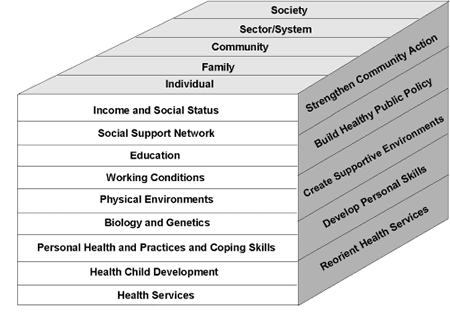“Reducing the [health] gap [between Indigenous Peoples and other Canadians] would require attention to income, education, social and physical environment, and housing and sanitary infrastructure, as well as the restoration of traditional lands, governance and culture.”
A few weeks ago, I sat in class, heart-broken and sobbing uncontrollably as an Indigenous guest speaker talked about the day he took his 7-year-old son off life-support. As a parent, I can’t imagine how that felt, nor do I want to imagine it. Just a few weeks later, I listened as a young Indigenous girl talked about her sibling who had died of cancer. Yet again, in that same week, a CBU nursing grad talked to our class about an Indigenous child who recently died at a local emergency department. Within a matter of a few weeks, I listened to the tragic stories of 3 local Indigenous youth who lost their lives far too young. I began to wonder why this was so common. Why are Indigenous Canadians experiencing such health disparities? How is their health care different from others? How can Indigenous health care be improved?
According to King, Smith and Gracey, “The root causes of poor health—the social determinants of health—are generally to blame for the poor state of everyone’s health, but especially Indigenous health (King, Smith & Gracey, 2009).”
Before studying nursing, I was oblivious to the determinants of health. I thought lifestyle was a choice, and that people who made poor choices eventually became ill. Although I noticed a relationship between health and social conditions, I never payed attention to how one impacted the other. I still remember reading about the population health promotion model in my first nursing class. I was enlightened by the big picture of health. Social conditions are always present, and they play a significant role in peoples’ health and illness. They operate upstream of “good” or “bad” decisions that ultimately determine one’s well-being.

Indigenous people often experience poor health because they are negatively affected by the social determinants of health. However, I was surprised to find that in addition to the determinants experienced by the general population, they are subject to determinants brought on by colonialism. As Czyzewski points out, colonialism– “the control or governing influence of a nation over a dependent country, territory, or people; the system or policy by which a nation maintains or advocates such control or influence” – should not be viewed from a historical perspective; lingering colonial social conditions are still major players in Indigenous health today (2011). Racism, “loss of language and connection to the land, environmental deprivation, and spiritual, emotional, and mental disconnectedness” are all additional determinants impacting the health of Indigenous populations (Czyzewski, 2011). There is even evidence of racism within the health care system, which can have detrimental, and even deadly, impacts. Many Indigenous people delay seeking medical attention, or do not receive proper health care, because of racism. For more on this, listen to the First Nations, Second Class Health Care podcast.
Improving the health conditions of Indigenous peoples requires changes in public policy, and commitment from all parties involved:
“Reducing and possibly eliminating health disparities would require policy that addresses the structural causes of causes perpetuated by the general population and the government via transfers of power, and a sustained commitment to change from settlers, the various levels of government, and the Indigenous community.”